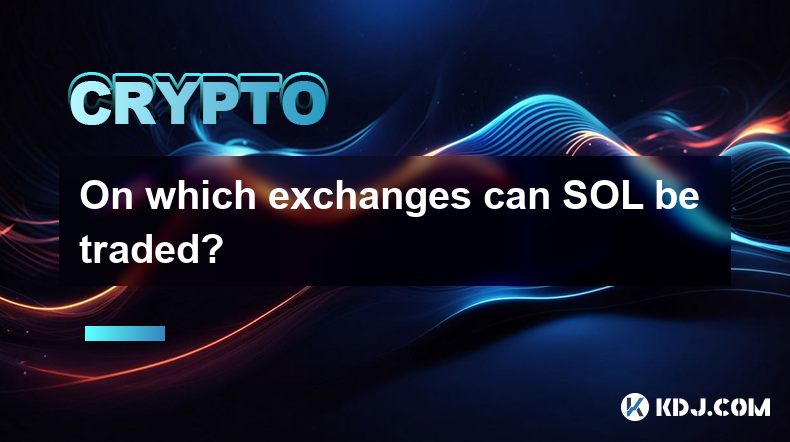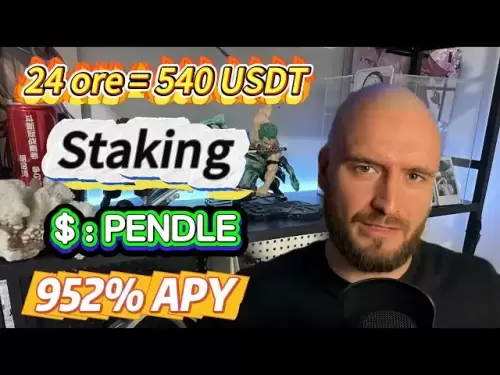-
 Bitcoin
Bitcoin $107,341.7259
0.15% -
 Ethereum
Ethereum $2,438.6204
0.70% -
 Tether USDt
Tether USDt $1.0003
-0.02% -
 XRP
XRP $2.1866
1.94% -
 BNB
BNB $649.0952
0.36% -
 Solana
Solana $150.9602
5.63% -
 USDC
USDC $0.9999
0.00% -
 TRON
TRON $0.2742
0.40% -
 Dogecoin
Dogecoin $0.1645
1.93% -
 Cardano
Cardano $0.5669
1.18% -
 Hyperliquid
Hyperliquid $37.8286
4.19% -
 Bitcoin Cash
Bitcoin Cash $491.4669
-2.74% -
 Sui
Sui $2.8150
3.06% -
 Chainlink
Chainlink $13.4184
2.91% -
 UNUS SED LEO
UNUS SED LEO $9.0809
0.27% -
 Avalanche
Avalanche $18.0295
2.60% -
 Stellar
Stellar $0.2396
1.19% -
 Toncoin
Toncoin $2.8587
0.13% -
 Shiba Inu
Shiba Inu $0.0...01160
2.59% -
 Litecoin
Litecoin $86.4192
1.45% -
 Hedera
Hedera $0.1486
1.19% -
 Monero
Monero $308.4324
0.87% -
 Polkadot
Polkadot $3.4202
1.43% -
 Bitget Token
Bitget Token $4.6436
-0.34% -
 Dai
Dai $0.9998
-0.02% -
 Ethena USDe
Ethena USDe $1.0002
0.00% -
 Uniswap
Uniswap $7.1527
3.29% -
 Pi
Pi $0.5357
-8.45% -
 Pepe
Pepe $0.0...09588
4.61% -
 Aave
Aave $259.9759
0.81%
On which exchanges can SOL be traded?
Solana (SOL) trades on numerous CEXs and DEXs; choosing wisely requires considering fees, security, liquidity, available trading pairs, and user experience, with regulatory compliance a key factor.
Mar 12, 2025 at 05:36 am

Key Points:
- Solana (SOL) is available on numerous centralized and decentralized exchanges (CEXs and DEXs).
- Choosing an exchange depends on factors like fees, security, available trading pairs, and user experience.
- Security and regulatory compliance are crucial considerations when selecting a platform to trade SOL.
- Decentralized exchanges offer greater autonomy but may have higher transaction fees and lower liquidity compared to CEXs.
On Which Exchanges Can SOL Be Traded?
Solana (SOL), the native token of the Solana blockchain, is traded on a wide variety of cryptocurrency exchanges, both centralized (CEXs) and decentralized (DEXs). The availability might vary slightly depending on your geographical location due to regulatory differences. It's crucial to check the exchange's specific region restrictions before attempting to trade.
Major Centralized Exchanges (CEXs) Listing SOL:
Many of the world's largest and most reputable cryptocurrency exchanges list SOL. These platforms generally offer high liquidity, a user-friendly interface, and a wide range of trading pairs. However, they also carry the inherent risks associated with centralized entities, including potential security breaches and susceptibility to regulatory actions.
- Binance: Binance is one of the largest cryptocurrency exchanges globally, offering a vast selection of trading pairs, including SOL against various fiat currencies and other cryptocurrencies. They generally offer competitive fees and a robust trading platform.
- Coinbase: Coinbase is a well-known and regulated exchange, known for its user-friendly interface and focus on regulatory compliance. While their fee structure might be slightly higher than some competitors, their reputation for security is a strong selling point for many traders.
- Kraken: Kraken is another established exchange offering SOL trading. They are known for their advanced charting tools and a strong focus on security features. They often cater to more experienced traders.
- OKX: OKX is a large global exchange that offers SOL trading with competitive fees and a wide array of trading pairs. They provide a variety of trading options, including spot, margin, and futures trading.
Decentralized Exchanges (DEXs) Supporting SOL:
Decentralized exchanges offer a different trading experience. They prioritize decentralization and user autonomy, eliminating the need to trust a central authority with your funds. However, DEXs often have higher transaction fees, potentially lower liquidity compared to CEXs, and a steeper learning curve for new users.
- Raydium: Raydium is a prominent DEX built on the Solana blockchain itself. It offers high-speed transactions and low fees compared to other DEXs, leveraging the Solana network's capabilities.
- Orca: Orca is another popular Solana-based DEX, known for its user-friendly interface and efficient routing algorithms designed to optimize transaction costs.
Factors to Consider When Choosing an Exchange:
Several factors should guide your decision when selecting an exchange to trade SOL:
- Fees: Transaction fees and trading fees vary considerably across different platforms. Compare fee structures before making a choice.
- Security: Prioritize exchanges with a proven track record of security and robust measures to protect user funds. Look for features like two-factor authentication (2FA) and cold storage.
- Liquidity: Higher liquidity means easier buying and selling of SOL without significantly impacting the price. Check the trading volume of SOL on each exchange before trading.
- Available Trading Pairs: Consider the availability of trading pairs that suit your needs. Do you want to trade SOL against Bitcoin (BTC), Ethereum (ETH), or fiat currencies?
- User Interface: Choose an exchange with a user-friendly interface that is easy to navigate, regardless of your trading experience level.
- Regulatory Compliance: Ensure the exchange operates within a regulatory framework that aligns with your jurisdiction.
Frequently Asked Questions:
Q: Is it safe to trade SOL on exchanges?
A: Trading on any exchange carries inherent risks. While reputable exchanges implement robust security measures, no system is entirely immune to breaches. Diversify your holdings and use strong security practices to mitigate risks.
Q: What are the differences between CEXs and DEXs for SOL trading?
A: CEXs offer centralized control, potentially higher liquidity, and user-friendly interfaces but expose users to counterparty risk. DEXs prioritize decentralization and user autonomy but may have lower liquidity and higher transaction fees.
Q: How do I choose the best exchange for me?
A: The "best" exchange depends on your individual needs and preferences. Consider factors like fees, security, liquidity, user experience, and regulatory compliance when making your decision.
Q: Are there any risks associated with trading SOL on decentralized exchanges?
A: Yes, DEXs carry risks such as smart contract vulnerabilities, impermanent loss (in liquidity pools), and the potential for scams. Thorough research and due diligence are crucial before using any DEX.
Q: What are the typical fees involved in trading SOL?
A: Fees vary widely depending on the exchange, trading volume, and the type of transaction. Some exchanges charge maker/taker fees, while others use flat fees or tiered fee structures. Check the specific fee schedule of each exchange before trading.
Disclaimer:info@kdj.com
The information provided is not trading advice. kdj.com does not assume any responsibility for any investments made based on the information provided in this article. Cryptocurrencies are highly volatile and it is highly recommended that you invest with caution after thorough research!
If you believe that the content used on this website infringes your copyright, please contact us immediately (info@kdj.com) and we will delete it promptly.
- BONK Price Prediction: Is the Meme Coin Ready to Pop?
- 2025-06-29 14:30:12
- Bitcoin Funding Rates, Short Squeeze, and the Price Decline: A Perfect Storm?
- 2025-06-29 14:50:12
- Bitcoin Cash (BCH): Explosive Move or False Dawn?
- 2025-06-29 15:10:12
- Chainlink, Lightchain AI, and Presale Hype: What's Real?
- 2025-06-29 15:10:12
- Pi Coin Price Prediction Today: Navigating Uncertainty
- 2025-06-29 14:55:12
- Meme Coins: Buy Now, Hold Forever? (Maybe)
- 2025-06-29 14:30:12
Related knowledge

How to customize USDT TRC20 mining fees? Flexible adjustment tutorial
Jun 13,2025 at 01:42am
Understanding USDT TRC20 Mining FeesMining fees on the TRON (TRC20) network are essential for processing transactions. Unlike Bitcoin or Ethereum, where miners directly validate transactions, TRON uses a delegated proof-of-stake (DPoS) mechanism. However, users still need to pay bandwidth and energy fees, which are collectively referred to as 'mining fe...

USDT TRC20 transaction is stuck? Solution summary
Jun 14,2025 at 11:15pm
Understanding USDT TRC20 TransactionsWhen users mention that a USDT TRC20 transaction is stuck, they typically refer to a situation where the transfer of Tether (USDT) on the TRON blockchain has not been confirmed for an extended period. This issue may arise due to various reasons such as network congestion, insufficient transaction fees, or wallet-rela...

How to cancel USDT TRC20 unconfirmed transactions? Operation guide
Jun 13,2025 at 11:01pm
Understanding USDT TRC20 Unconfirmed TransactionsWhen dealing with USDT TRC20 transactions, it’s crucial to understand what an unconfirmed transaction means. An unconfirmed transaction is one that has been broadcasted to the blockchain network but hasn’t yet been included in a block. This typically occurs due to low transaction fees or network congestio...

How to check USDT TRC20 balance? Introduction to multiple query methods
Jun 21,2025 at 02:42am
Understanding USDT TRC20 and Its ImportanceUSDT (Tether) is one of the most widely used stablecoins in the cryptocurrency market. It exists on multiple blockchain networks, including TRC20, which operates on the Tron (TRX) network. Checking your USDT TRC20 balance accurately is crucial for users who hold or transact with this asset. Whether you're sendi...

What to do if USDT TRC20 transfers are congested? Speed up trading skills
Jun 13,2025 at 09:56am
Understanding USDT TRC20 Transfer CongestionWhen transferring USDT TRC20, users may occasionally experience delays or congestion. This typically occurs due to network overload on the TRON blockchain, which hosts the TRC20 version of Tether. Unlike the ERC20 variant (which runs on Ethereum), TRC20 transactions are generally faster and cheaper, but during...

The relationship between USDT TRC20 and TRON chain: technical background analysis
Jun 12,2025 at 01:28pm
What is USDT TRC20?USDT TRC20 refers to the Tether (USDT) token issued on the TRON blockchain using the TRC-20 standard. Unlike the more commonly known ERC-20 version of USDT (which runs on Ethereum), the TRC-20 variant leverages the TRON network's infrastructure for faster and cheaper transactions. The emergence of this version came as part of Tether’s...

How to customize USDT TRC20 mining fees? Flexible adjustment tutorial
Jun 13,2025 at 01:42am
Understanding USDT TRC20 Mining FeesMining fees on the TRON (TRC20) network are essential for processing transactions. Unlike Bitcoin or Ethereum, where miners directly validate transactions, TRON uses a delegated proof-of-stake (DPoS) mechanism. However, users still need to pay bandwidth and energy fees, which are collectively referred to as 'mining fe...

USDT TRC20 transaction is stuck? Solution summary
Jun 14,2025 at 11:15pm
Understanding USDT TRC20 TransactionsWhen users mention that a USDT TRC20 transaction is stuck, they typically refer to a situation where the transfer of Tether (USDT) on the TRON blockchain has not been confirmed for an extended period. This issue may arise due to various reasons such as network congestion, insufficient transaction fees, or wallet-rela...

How to cancel USDT TRC20 unconfirmed transactions? Operation guide
Jun 13,2025 at 11:01pm
Understanding USDT TRC20 Unconfirmed TransactionsWhen dealing with USDT TRC20 transactions, it’s crucial to understand what an unconfirmed transaction means. An unconfirmed transaction is one that has been broadcasted to the blockchain network but hasn’t yet been included in a block. This typically occurs due to low transaction fees or network congestio...

How to check USDT TRC20 balance? Introduction to multiple query methods
Jun 21,2025 at 02:42am
Understanding USDT TRC20 and Its ImportanceUSDT (Tether) is one of the most widely used stablecoins in the cryptocurrency market. It exists on multiple blockchain networks, including TRC20, which operates on the Tron (TRX) network. Checking your USDT TRC20 balance accurately is crucial for users who hold or transact with this asset. Whether you're sendi...

What to do if USDT TRC20 transfers are congested? Speed up trading skills
Jun 13,2025 at 09:56am
Understanding USDT TRC20 Transfer CongestionWhen transferring USDT TRC20, users may occasionally experience delays or congestion. This typically occurs due to network overload on the TRON blockchain, which hosts the TRC20 version of Tether. Unlike the ERC20 variant (which runs on Ethereum), TRC20 transactions are generally faster and cheaper, but during...

The relationship between USDT TRC20 and TRON chain: technical background analysis
Jun 12,2025 at 01:28pm
What is USDT TRC20?USDT TRC20 refers to the Tether (USDT) token issued on the TRON blockchain using the TRC-20 standard. Unlike the more commonly known ERC-20 version of USDT (which runs on Ethereum), the TRC-20 variant leverages the TRON network's infrastructure for faster and cheaper transactions. The emergence of this version came as part of Tether’s...
See all articles

























































































